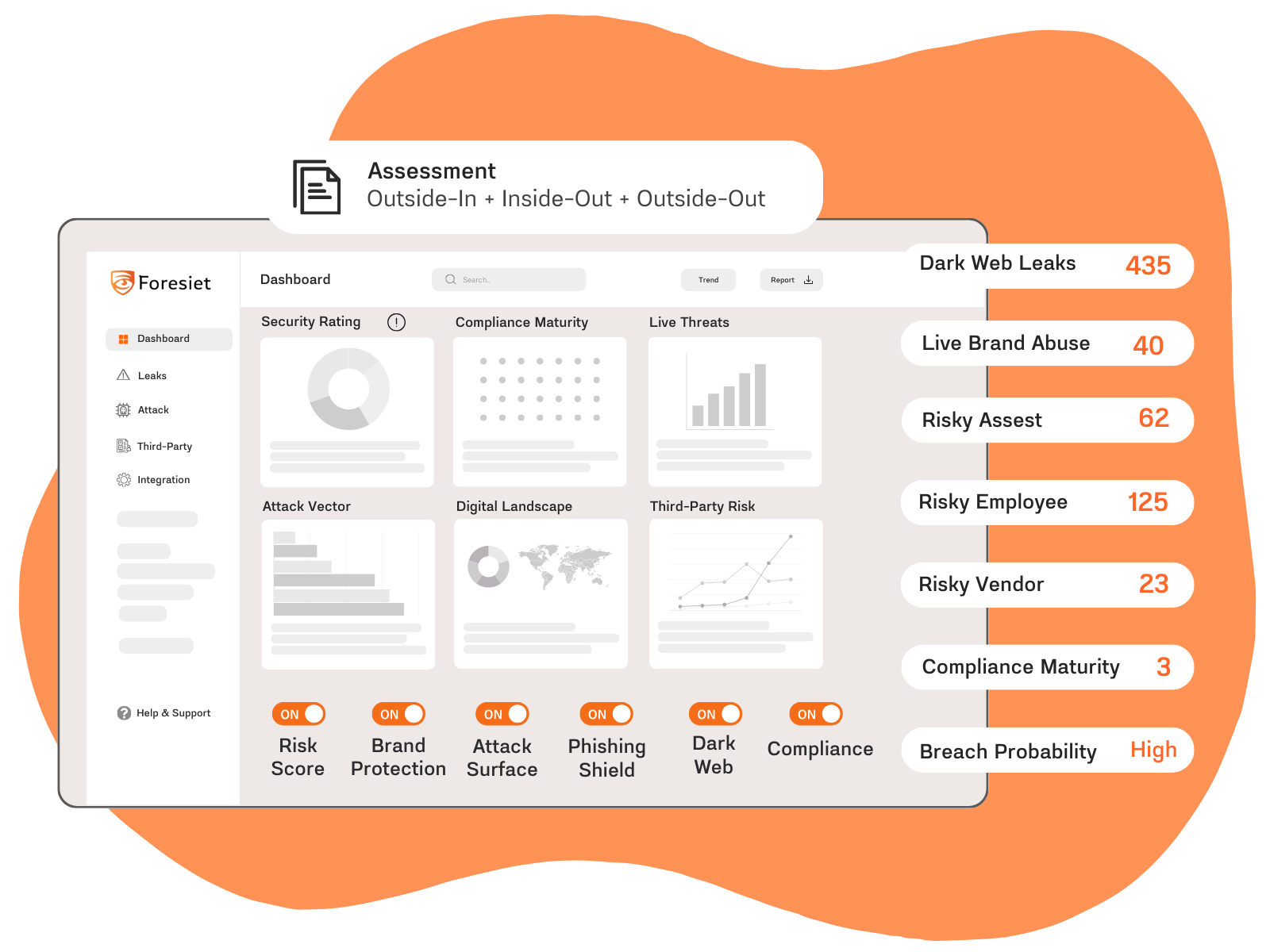Aadhaar Data Security: How Companies Can Remain Compliant and Avoid Data Leaks

Introduction
Since Aadhaar is such an integral part of identity verification in India, its security is of utmost importance. In a recent LocalCircles survey, 87% of Indian citizens felt their personal information, including Aadhaar information, has been compromised. This eye-opening stat underscores the necessity of companies putting strong security measures in place, which are also UIDAI compliant.
Since cyber-attacks are constantly evolving, Aadhaar data must be protected beyond encryption—it must have a master plan that addresses secure storage, access controls, and web threat detection. Let us see how Aadhaar data leaks are a threat, the regulatory environment that governs its protection, and the best practices that businesses can adopt to secure sensitive information.
Why Aadhaar Data is a Prime Target for Cybercriminals
Aadhaar data is applied across banking, telecommunications, healthcare, and e-commerce, so it becomes a focus for cyber hackers. Cyber hackers use data transmission and storage vulnerabilities and devise phishing attacks, identity thefts, and financial forgeries.
For instance, when Mahakumbh festival is taking place, individuals were reporting that they received unwanted donation messages from unknown numbers. The overwhelming majority of them have reported that they never shared contact information with such parties, which reflects unauthorized access of data. All of these cases are reflecting how Aadhaar information was hacked can be utilized for criminal activities.
Legal Framework for Aadhaar Data Protection
1. Digital Personal Data Protection Act, 2023 (DPDP Act)
The DPDP Act again attempts to harmonize the collection, processing, and storage of personal data by removing outdated IT Act, 2000 provisions. Aadhaar data-processing firms must:
- Gather clear consent prior to collecting data.
- Process and store Aadhaar data securely.
- Minimize data usage and enable users to withdraw consent.
Failure to do so may invite hefty penalties, and therefore it is important that UIDAI-compliant security measures are adopted by companies.
2.The Aadhaar Act, 2016
The law regulates the use of Aadhaar data and provides that:
- Biometric and demographic Aadhaar data is not to be shared without authorization.
- Aadhaar data can be stored by UIDAI-approved agencies only.
- Aadhaar data is to be encrypted and stored securely.
3.Supreme Court's Privacy Judgment (2017)
The case of Justice K.S. Puttaswamy vs. Union of India was a landmark case that made privacy part of fundamental rights under Article 21. The judgment reiterated that Aadhaar data should be safeguarded against misuse and unauthorized access, further adding to tighter compliance mechanisms.
Aadhaar Data Vault: The Supreme Security Measure
An Aadhaar Data Vault (ADV) is a safe repository that encrypts Aadhaar numbers, substituting them with reference keys to limit exposure. The system makes Aadhaar data accessible only when needed, largely reducing security threats.
For UIDAI compliance, Aadhaar numbers in the ADV have to be encrypted using cryptography keys controlled within a Hardware Security Module (HSM). This will ensure that there is no unauthorized access and breaches.
Aadhaar Data Security Best Practices
- Implement Strong Access Controls
The Aadhaar data must be limited in access. Firms should apply multi-factor authentication (MFA) and limit access to authorized personnel.
- Employ Advanced Encryption Techniques
Aadhaar data should be encrypted both at rest and in transit, ensuring compliance with UIDAI’s security standards. Strong encryption protocols prevent unauthorized decryption.
- Adopt Tokenization
Rather than storing Aadhaar numbers directly in databases, companies must employ reference keys within a secure Aadhaar Data Vault. This dramatically reduces data exposure.
- Utilize Hardware Security Modules (HSMs)
FIPS 140-3 Level 3 Approved HSMs offer tamper-proof encryption and key management, with the security benefits and UIDAI standards compliance features.
- Regular Security Audits and Digital Threat Scoring
Regular security checks and ongoing tracking of cyber-attacks assist in uncovering vulnerabilities before they are exploited. Use of digital footprint inspection and stolen information tracking services can make businesses one step ahead of cyber-attacks.
CryptoBind Aadhaar Data Vault Compliance
CryptoBind Aadhaar Data Vault is a highly secure, UIDAI-compliant offering to safeguard Aadhaar data. End-to-end encryption combined with HSM-backed security can enable regulation compliance as well as best-in-class data protection for enterprises.
Major Features of CryptoBind Aadhaar Data Vault
- End-to-End Encryption: Safeguards Aadhaar data across the lifecycle.
- Reference Key Mapping: Ensures Aadhaar number is never presented directly.
- HSM-Backed Security: Offers cryptographic key management with robust security.
- Multi-Layer Authentication: Authenticate user identity through biometric, OTP, and demographics authentication.
- Regulatory Compliance: Adheres to UIDAI, RBI, and other data protection laws.
Conclusion
With an increase in cyber-attacks, the security of Aadhaar data has never been so important. Utilizing UIDAI-compliant security solutions like encryption, tokenization, and darknet monitoring services can make companies safe from leakage of confidential information while adhering to regulatory compliance.
With solutions such as CryptoBind Aadhaar Data Vault, organizations are able to strengthen their Aadhaar data security, protect their brand, and avoid identity theft. Act immediately and safeguard Aadhaar data to create a solid digital future.
Protect your Aadhaar data with CryptoBind now.
About us!
Foresiet is the pioneering force in digital security solutions, offering the first integrated Digital Risk Protection SaaS platform. With 24x7x365 dark web monitoring and proactive threat intelligence, Foresiet safeguards against data breaches and intellectual property theft. Our robust suite includes brand protection, takedown services, and supply chain assessment, enhancing your organization's defense mechanisms. Attack surface management is a key component of our approach, ensuring comprehensive protection across all vulnerable points. Compliance is assured through adherence to ISO27001, NIST, GDPR, PCI, SOX, HIPAA, SAMA, CITC, and Third Party regulations. Additionally, our advanced antiphishing shield provides unparalleled protection against malicious emails. Trust Foresiet to empower your organization to navigate the digital landscape securely and confidently.
Protect your brand, reputation, data, and systems with Foresiet's Integrated Digital Risk Platform. 24/7/365 threat monitoring for total peace of mind.


July 1, 2025, 7:17 p.m.

July 1, 2025, 7:07 p.m.